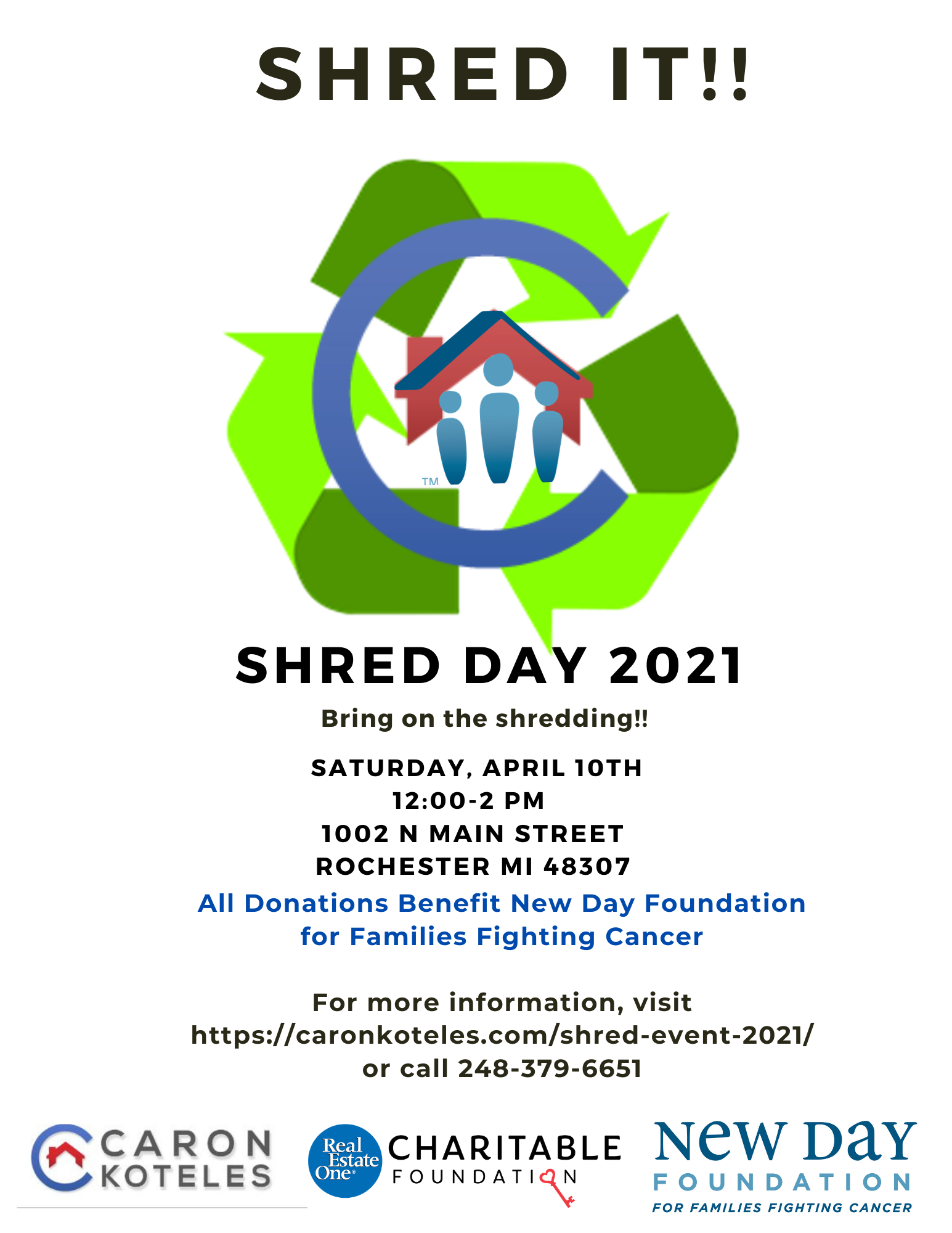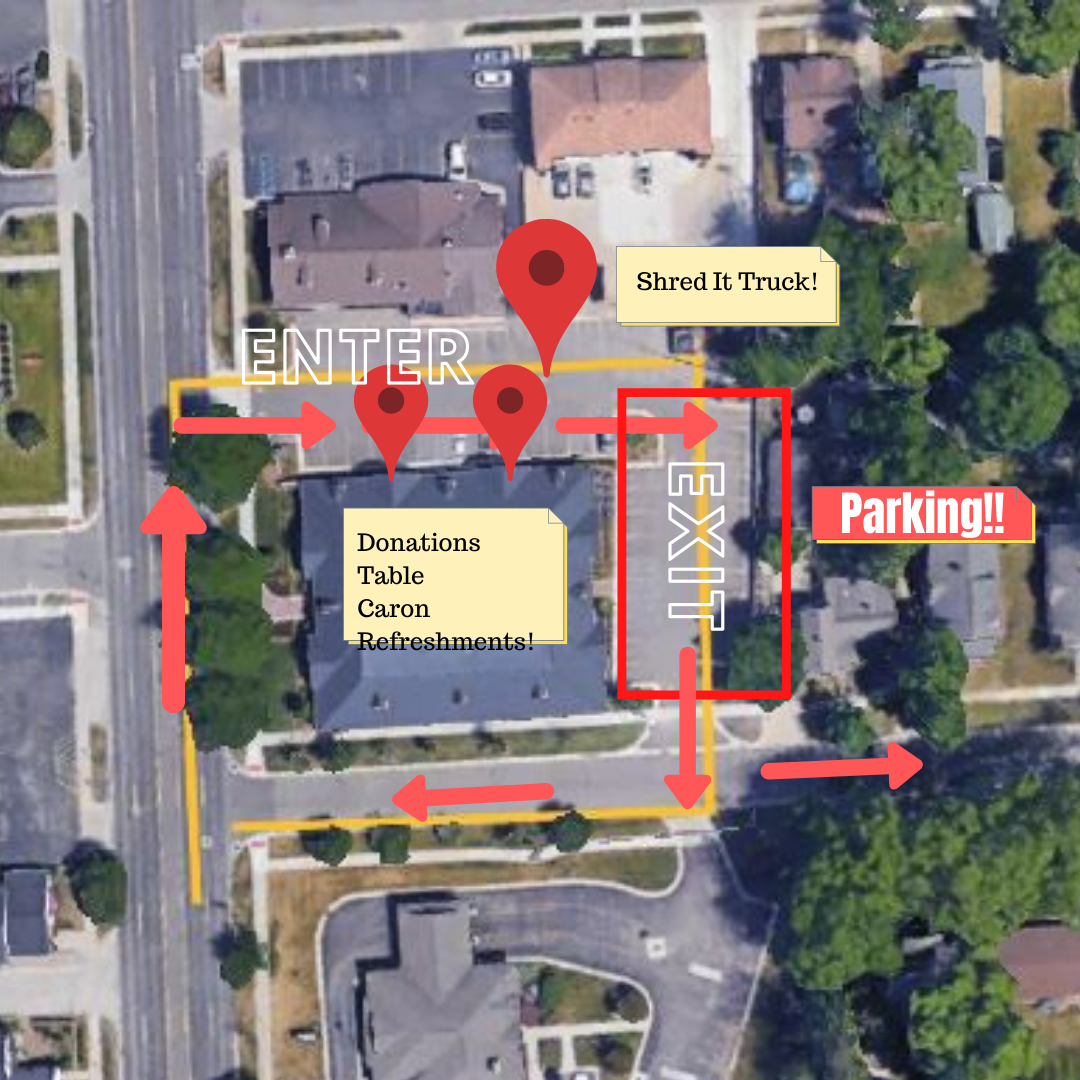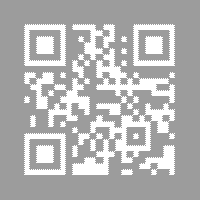Saturday, April 10th, 2021
12:00- 2 pm @ 1002 N. Main Street Rochester MI
Make Donations here!
Make Donations here!
Bring on the shredding! All donations benefit New Day Foundation for Families fighting cancer.
Here are 10 documents to bring to a Community Shred-it event:
1. Duplicates. Most people don’t need to keep more than one copy of anything. Also, consider that record-keeping today is simpler with computers. Electronic records can take the place of paper in many cases.
2. Old bank documents. Find out how long your financial service providers keep banking records. If it is shorter than the time required for tax-related information (in some cases, 7 years), keep hard copies based on that time frame and put the rest into the c9.ontainer destined for the Community Shred-it event. Safely store any canceled checks needed for tax-related purposes – and have the rest securely destroyed. Once you have checked ATM receipts against bank statements, they can be destroyed too.
3. Old tax records. Check state or provincial and other laws to see if the statute of limitations is past – destroy records if they are.
Unnecessary receipts and bills.
4. Paid credit card or utility bills can now be destroyed. Also, shred sales receipts and medical receipts unless related to warranties, taxes or insurance.
5. Expired policies. Home and car insurance policies contain a lot of confidential information. Once the insured period is over and the policy is no longer in effect, these documents should be slated for secure destruction. (But store in a safe place if needed for tax purposes).
6. Junk mail: Personal data is often included in marketing materials. For example, names and addresses are inserted into pre-approved credit card applications. Never put junk mail into the garbage or recycling bin. This material must always be securely destroyed.
7. Old travel documents: Barcodes on boarding passes contain contact information and even frequent flyer account numbers.
8. Shipping labels: Any online or other purchases that are delivered to a home or office contain labels that often include confidential information such as address, tracking codes and account numbers. Remove these for secure shredding before boxes or packages are broken down and recycled.
9. Photos: Photos of friends and family that you don’t want any more should be securely shredded instead of tossed into the garbage. They could be used on fake ID.
10. Post-it notes: Many people record passwords and account numbers on Post-it notes – these should be securely destroyed.
For more info., visit https://caronkoteles.com/shred-event-2020/
What not to shred Please ensure NONE of these items are included with your documents.
Batteries
Large Metal Objects
Syringes
Sharp Objects
Food
Glass, cans, etc.
Cardboard Tubes
Ink Cartridges and Toners
Pressurized Containers
Electrical Items



